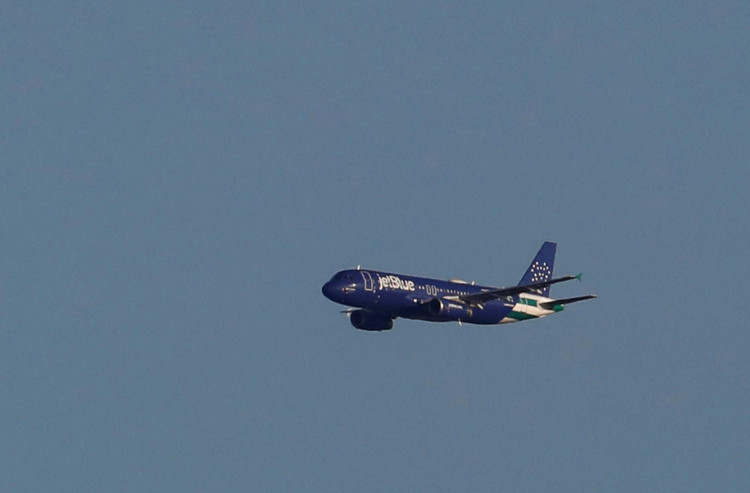The U.S. Department of Transportation (DOT) has fined JetBlue Airways $2 million for persistent flight delays and unrealistic scheduling practices, marking the first penalty of its kind in the airline industry. The decision, announced Friday, underscores the DOT's recent focus on passenger protections and its intent to hold airlines accountable for disruptions caused by scheduling issues.
Transportation Secretary Pete Buttigieg stated, "The department will enforce the law against airlines with chronic delays or other unrealistic scheduling practices in order to protect healthy competition in commercial aviation and ensure passengers are treated fairly." He added, "Today's action puts the entire airline industry on notice that we expect their flight schedules to reflect reality."
The fine pertains to delays on four specific JetBlue routes, including those connecting New York's John F. Kennedy International Airport to Raleigh-Durham International Airport, North Carolina, and Fort Lauderdale, Florida, as well as routes between Fort Lauderdale and Orlando, and Fort Lauderdale and Windsor Locks, Connecticut. The DOT reported that these flights experienced at least 145 delays between June 2022 and November 2023, with JetBlue responsible for over 70% of the disruptions on these routes.
The DOT defines a flight as "chronically delayed" if it operates at least 10 times a month and arrives more than 30 minutes late over half the time. JetBlue was found to have failed to adjust its schedules to mitigate such delays, leading the DOT to label its practices as "illegal unrealistic scheduling."
JetBlue acknowledged the settlement in a statement but shifted some blame to systemic issues. "We believe accountability for reliable air travel equally lies with the U.S. government, which operates our nation's air traffic control system," the airline said. It called for investments in modernizing the outdated air traffic control (ATC) infrastructure and addressing chronic staffing shortages among air traffic controllers.
JetBlue, based in New York, operates in some of the country's most congested airspace. While the airline's on-time performance improved from 64.9% in 2023 to 71.3% in the first nine months of 2024, it still ranked ninth out of 10 major U.S. carriers in on-time arrivals, according to the DOT.
The $2 million fine includes $1 million that will be credited toward JetBlue's goodwill compensation for passengers affected by the delays during the investigation. This compensation includes vouchers worth at least $75, which must be distributed within a year of the DOT's order. The remaining $1 million is a direct penalty.
JetBlue's delays occurred during a period of heightened scrutiny of airline operations. The DOT has launched investigations into other airlines for similar issues, signaling a broader crackdown on what it sees as systemic problems in the industry. Recent rules introduced by the department also require airlines to disclose all fees on airfares, part of an effort to improve transparency and fairness for travelers.
The fine has reignited debates over responsibility for flight disruptions. While airlines like JetBlue argue that outdated ATC systems are a significant contributor, government officials emphasize that airlines must create realistic schedules to ensure reliability.
President-elect Donald Trump has nominated Sean Duffy, a former congressman and Fox Business host, to lead the DOT in his administration. Duffy's nomination has fueled speculation about whether the department's tough stance on airlines will continue.
The JetBlue case sets a precedent for holding airlines accountable for unrealistic scheduling, a move that may prompt industry-wide changes. However, it also raises questions about the need for systemic improvements in ATC operations, an issue that JetBlue and other airlines argue is critical to reducing delays.




